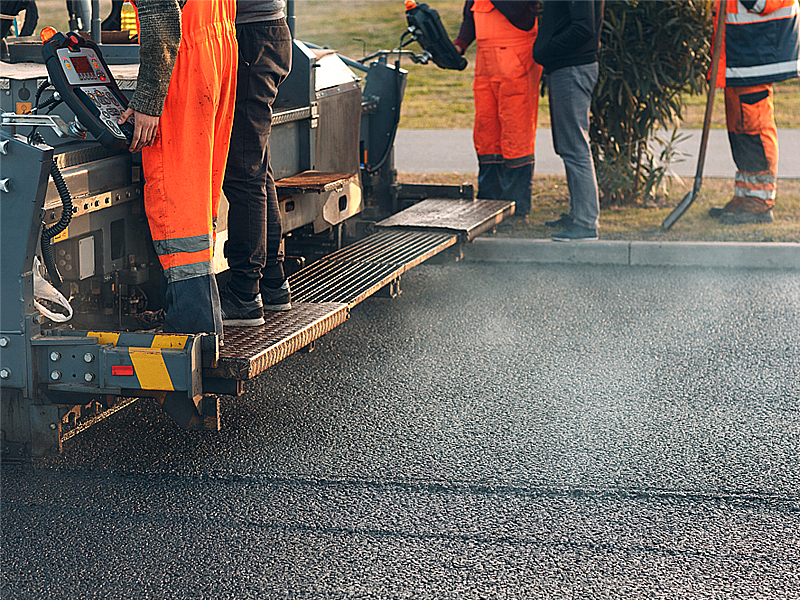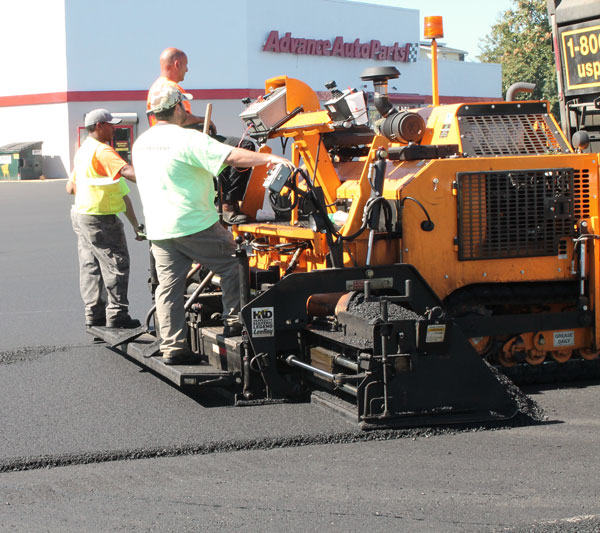Comprehensive Paving for Commercial Needs
Comprehensive Paving for Commercial Needs
Blog Article
Exploring the Different Types of Asphalt Paving and Their Advantages
The landscape of asphalt paving includes a range of types, each engineered to deal with particular needs and ecological factors to consider. From the robust features of Warm Mix Asphalt to the green attributes of Recycled Asphalt Sidewalk, comprehending these options can dramatically affect task results. Technologies such as Warm Mix Asphalt and Porous Asphalt present extra layers of performance and sustainability. As we discover these different paving services, the nuanced advantages they supply might stun you and potentially change your approach to future paving tasks.
Warm Mix Asphalt
When thinking about one of the most reliable paving services, hot mix asphalt (HMA) stands apart as a leading choice for numerous applications (paving service). HMA is a flexible paving product known for its durability, flexibility, and overall performance. It is generated by heating asphalt binder and integrating it with aggregates at high temperature levels, guaranteeing an uniform mix that can withstand different ecological conditions
One of the primary advantages of HMA is its ability to give a smooth, skid-resistant surface area, improving safety for automobiles and pedestrians alike. Furthermore, HMA shows exceptional resistance to contortion, making it optimal for high-traffic areas such as freeways and vehicle parking lots. Its adaptability to various climates better adds to its widespread use.
The installment process of HMA is relatively quick, enabling for reliable job conclusion with very little interruption to traffic. It can be recycled, minimizing waste and promoting sustainability within the building sector. paving service. In general, warm mix asphalt remains a top choice for leading experts due to its durable efficiency features and long-lasting cost-effectiveness, making it a trusted solution for different infrastructure requirements
Warm Mix Asphalt
Warm mix asphalt (WMA) offers an innovative alternative to warm mix asphalt, offering similar advantages while requiring lower production temperature levels. Normally created at temperature levels between 190 ° F and 250 ° F, WMA innovation decreases energy intake and greenhouse gas discharges during manufacturing, making it a more eco-friendly choice.
This versatility can lead to boosted compaction and total sturdiness of the asphalt surface area. In addition, WMA can be used in different applications, varying from freeways to residential driveways, without compromising efficiency.

The unification of additives or modified binders in WMA contributes to its enhanced buildings, ensuring that it satisfies or surpasses efficiency criteria. Additionally, WMA's minimized thermal impact during manufacturing can reduce the possibility of damages to the surrounding atmosphere, making it an enticing selection for lasting paving practices.
Cold Mix Asphalt
Cold mix asphalt is a functional leading option typically made use of for momentary repair services and low-traffic locations. This sort of asphalt is generated at ambient temperatures, making it a hassle-free selection for fast repairs and tasks where conventional warm mix asphalt may not be viable. The combination normally includes asphalt binder, accumulation, and additives, permitting it to stay convenient for an extended duration.
One of the main advantages of cold mix asphalt is its ease of application. It can be set up without specific equipment, making it easily accessible for smaller contractors and do it yourself lovers. Furthermore, cool mix can be applied in numerous climate conditions, which is especially useful for urgent repair service demands.

It may not provide the very same lasting resilience as warm mix asphalt, its fast application and adaptability make it an excellent selection for short-term solutions and low-traffic applications. On the whole, chilly mix asphalt remains a functional option in the asphalt paving landscape.
(read more)
Porous Asphalt
Permeable asphalt is an ingenious paving option created to enhance stormwater administration and reduce surface area runoff. This kind of asphalt features an one-of-a-kind framework that integrates interconnected gaps, allowing water to penetrate through the surface and right into the underlying layers. By helping with natural drain, permeable asphalt helps alleviate the risk of flooding and lessens the worry on metropolitan stormwater systems.
One of the key advantages of porous asphalt is its ability to improve water quality. As stormwater infiltrate the sidewalk, toxins and debris are entraped, reducing the number of pollutants that get in local rivers. This adds to healthier ecological communities and sustains compliance with ecological policies.
Furthermore, permeable asphalt can boost the long life of the pavement itself. By minimizing water buildup on the surface area, it decreases the possibility for freeze-thaw cycles that can lead to breaking and deterioration. Furthermore, the lowered demand for typical stormwater administration facilities can cause expense financial savings for communities and designers.
Recycled Asphalt Pavement
(access this)Recycled asphalt sidewalk (RAP) represents a sustainable method to street building and construction and upkeep that profits both his response the environment and the economic situation. By recycling existing asphalt products, RAP minimizes the demand for brand-new raw materials, which subsequently preserves all-natural resources and minimizes ecological influence. This technique lowers power consumption and greenhouse gas discharges related to the manufacturing of new asphalt.
The incorporation of RAP into brand-new sidewalk mixtures can also result in considerable cost financial savings. Service providers can take advantage of recycled materials to reduce general task expenses, making it a financially feasible option for communities and exclusive programmers alike. Furthermore, RAP uses equivalent efficiency qualities to virgin asphalt, making sure durability and durability in roadway surface areas.
RAP's versatility enables it to be utilized in various applications, consisting of freeways, car park, and domestic driveways. By improving the architectural stability of existing sidewalks, RAP adds to enhanced safety and level of smoothness of roads.
Final Thought
Warm Mix Asphalt excels in resilience and quick setup for high-traffic areas, while Warm Mix Asphalt enhances sustainability through reduced power usage. Cold Mix Asphalt offers as an affordable choice for urgent repairs, Porous Asphalt effectively takes care of stormwater, and Recycled Asphalt Pavement promotes environmental responsibility.
Report this page